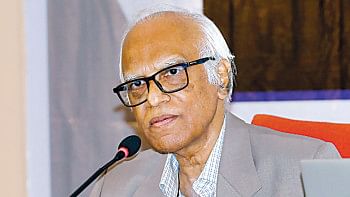Noteworthy SC Verdicts of 2017

2017 has been a remarkable year for the higher judiciary of Bangladesh. While legal scholars dissect, analyse and critique the verdicts laid down, this write-up sheds light on 10 most talked about verdicts of the year.
SC upholds decision to scrap the 16th Amendment
The most discussed verdict came in July when the SC upheld the decision of striking down the Constitution (Sixteenth Amendment) Act, 2014, thereby reinstating the power of impeaching the apex court judges back to the Supreme Judicial Council from the hands of the Parliament. The government has already started the proceedings for a review petition of the case.
The Catherine Masud verdict
On 3rd December, the HCD awarded BDT 4.6 crore to renowned filmmaker Tareque Masud's family in damages against the insurance company, the bus owners and the bus driver over his death via road accident in 2010. Given the scarcity of tort cases in Bangladesh, this decision will definitely set a precedent in seeking compensation from the courts under the Motor Vehicles Ordinance, 1983 by road accident victims and their families besides filing criminal cases against the perpetrators.
HCD commutes the death sentence of Oyshee Rahman
In November 2015, a Dhaka court sentenced Oyshee Rahman to death for murdering her parents and fined her BDT 20,000/-. However, on 5th June, the HCD commuted her death sentence to imprisonment for life taking into consideration a number of extenuating factors including- a lack of motive, her physical and psychological ailments, past criminal records and surrender to the police. This has indeed upheld the principles of natural justice as Oyshee was bound by factors outside her control in committing the murders.
HCD orders compensation to be paid to Jihad's family over his death
On 24th December 2015, young Jihad died after falling into an unprotected shaft. Besides the criminal case, a writ petition was also filed before the HCD seeking compensation for his wrongful death. The HCD released the full verdict on 8th October directing Bangladesh Railway and Bangladesh Fire Service and Civil Defence to pay BDT 10 lakh each as compensation to the family within 90 days..
HCD upholds the death sentence of Rajon's murderers
In July 2015, 13 year old Rajon was brutally beaten to death in Sylhet. Afterwards, a Sylhet court handed down death penalty to four of the perpetrators and life imprisonment to the person filming the incident and fined them BDT 10,000/- each. The HCD, after hearing the death reference case, upheld the death sentences but commuted the life imprisonment of another convict to imprisonment for six months on April 11.
HCD issues suo moto rule regarding the birth and subsequent death of a child in the open street
On 18th October, 26 year old Parvin Akhter gave birth to her child in the open street in front of Azimpur Matrishadan after being deprived of medical facilities from three hospitals. Consequently, her child died due to want of proper medical care. A High Court bench issued a sue moto rule afterwards, asking the concerned authorities as to why steps should not be taken against the three hospitals for failure to discharge their duties. While the litigation is still pending, the apex court deserves praise for this suo moto rule to uphold justice.
HCD awards compensation for medical malpractice
In perhaps another instance of tort litigation, the HCD ordered compensation worth BDT 900,000/- to be paid to Maksuda Begum of Patuakhali, after she was left with gauze in her body following a childbirth surgery. The surgeon performing the operation was later discovered to be a fake one and would have to pay BDT 500,000/- while the clinic would have to pay BDT 400,000/- within 15th January 2018.
SC's directives on legal education
In the case of Bangladesh Bar Council & Others v A.K.M. Fazlul Kamir & Others decided on 8th February, the SC allowed the admission of students in law schools of all universities except Darul Ihsan University and issued various guidelines to the public and private universities, UGC and Bangladesh Bar Council regarding legal education, student enrolment in the universities and enrolment of advocates in the bar. Various aspects of the verdict have been vehemently questioned by legal scholars since then.
SC's interpretation of 'life imprisonment'
In the case of Ataur Mridha v The State decided on 14th February, the court held that life imprisonment within the meaning of s.53, read with s.45 of the Penal Code means imprisonment for the rest of the life of the convict, while reducing the death sentences of the appellants to imprisonment for life. This verdict has led to confusions regarding the interpretation of the power of commutation of sentences of different authorities provided in various legislations
SC's verdict on mobile courts
In May, the HCD declared 11 sections of the Mobile Court Act, 2009 unconstitutional, thereby pronouncing executive-run mobile courts illegal. It however, observed that mobile courts can be run by judicial or metropolitan magistrates. While the SC stayed this order from time to time since then and allowed executive run mobile courts to function, various instances of abuse of power by the mobile courts have been reported in the media. It remains to be seen as to what the final verdict would be from the SC.
The writer is a Contributor to the Law desk, the daily star.


 For all latest news, follow The Daily Star's Google News channel.
For all latest news, follow The Daily Star's Google News channel. 



Comments